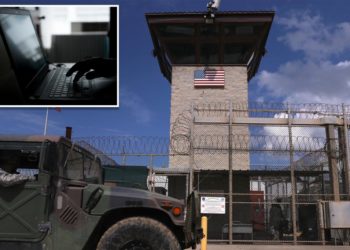Israelis and Iranians have long feared open warfare between their countries, and as the bombs fell on Saturday, Americans with loved ones in both places watched from afar with anger, fear and a sense of deep foreboding.
Leili, an Iranian in New York who asked to be identified by only her first name for fear of retribution from the Iranian government, said she learned the war had begun when texts from friends and family began pouring in. Since then, she has followed the news, but has often found it too painful to bear.
“I thought, ‘This is monstrous,’” she said. “I saw images of little boys in Shiraz, which to me is one of the most beautiful cities in the world, sitting on the ground, bloodied. It has been heartbreaking.”
Many Jewish Americans have met the outbreak of war with feelings of “frustration and helplessness,” especially after recent attacks on Jews in Washington, D.C., and Colorado, said Mitchell Silber, the executive director of the Community Security Initiative, which provides security guidance to Jewish institutions in the New York area.
“Everything is compounded after the last few weeks because of the attack in D.C. and the attack in Boulder,” he said. “The level of anxiety in the Jewish community is about as high as I have ever seen it.”
The war began on Friday when Israel launched a surprise attack that took aim at the Iranian regime. Since then, the two countries have launched waves of attacks at each other. Israel’s strikes have killed at least 128 people in Iran and injured more than 900 others, according to the country’s health ministry. In Israel, at least 13 people, identified as civilians, have been killed during Iran’s retaliatory barrages since Friday.
The conflict comes after years of shadow warfare and roughly 18 months of Israeli military action against Iranian allies across the Middle East, including the Houthis in Yemen, Hezbollah in Lebanon and Hamas in Gaza.
Israel has blamed Iran, in part, for the Hamas-led terrorist attack on Oct. 7, 2023, which killed roughly 1,200 Israelis. Israel invaded Gaza in response, and the war there has killed tens of thousands of Palestinians, led to war crimes charges against Israeli and Hamas leaders, and radically reshaped the Middle East.
On Saturday, Mike Huckabee, the American ambassador to Israel, said there were roughly 700,000 U.S. citizens living in the country. A smaller number of Americans live in Iran, but many people in the United States have family or personal ties there as well.
In recent days, Jewish organizations in New York have been following advice that was prepared by Mr. Silber’s organization. It is advice they are sadly familiar with after years of rising antisemitism in the United States.
They have been told to go about their usual activities but to keep an eye on who may be hanging around their facilities and to stay in touch with law enforcement agencies. In New York on Friday, the Police Department said it had been providing extra security to Jewish institutions, like synagogues, schools and community centers.
But those protocols can do little to vanquish feelings of unease.
“We ourselves have friends who are in Israel, and no one is straying very far from the shelters,” said Mr. Silber, who hid in a bomb shelter in Ashdod during the Oct. 7 attack, when he was in Israel for work. “You never know when the next siren is going to go off and you’ll have to scramble for shelter.”
Fear has been widespread in Iran as well, where few people have access to the sort of shelters or early warning system that has helped save lives in Israel.
After watching the devastation in Gaza and Lebanon over the past year, it has been frightening for Iranians in New York to contemplate the destruction that war could cause in Iran.
“My friends and family in Tehran have been terrified — this is terrorizing a country of 80 million people,” said Leili, who hopes to one day see a democratic government in Iran. “I am not pro-regime, but this is damaging to all life in Iran and all possibility of a more hopeful future there.”
Liam Stack is a Times reporter who covers the culture and politics of the New York City region.
The post As Bombs Land in Israel and Iran, New Yorkers Fear for Their Loved Ones appeared first on New York Times.



